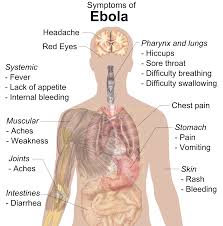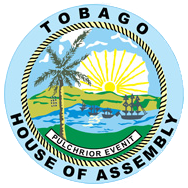Ebola Virus Disease
What is Ebola?
Ebola, previously known as Ebola haemorrhagic fever, is a rare and deadly disease caused by infection with one of the Ebola virus strains.
Ebola can cause disease in humans and non-human primates (monkeys, gorillas, and chimpanzees).
Ebola is caused by infection with a virus of the family Filoviridae, genus Ebolavirus. There are five identified Ebola virus species, four of which are known to cause disease in humans.
Symptoms of Ebola?
The incubation period is 2 to 21 days ( that is, the time interval from infection with the virus to onset of symptoms)
Humans are not infectious until they develop symptoms.
First symptoms are the sudden onset of fever fatigue, muscle pain, headache and sore throat.
Background:
Ebola viruses are found in several African countries. Ebola was first discovered in 1976 near the Ebola River in what is now the Democratic Republic of the Congo. Since then, outbreaks have appeared sporadically in Africa.
The natural reservoir host of Ebola virus remains unknown. However, on the basis of evidence and the nature of similar viruses, researchers believe that the virus is animal-borne and that bats are the most likely reservoir. Four of the five virus strains occur in an animal host native to Africa.
World Mapping of the Ebola Virus Disease
World Mapping of the Ebola Virus Disease
How the disease is transmitted?
Direct contact (through broken skin or mucous membranes in, for example, the eyes, nose, or mouth) with
blood or body fluids (including but not limited to urine, saliva, sweat, feces, vomit, breast milk, and semen) of a person who is sick with Ebola
objects (like needles and syringes) that have been contaminated with the virus
Handling infected animals.
Prevention:
f you travel to or are in an area affected by an Ebola outbreak, make sure to do the following:
Practice careful hygiene. For example, wash your hands with soap and water or an alcohol-based hand sanitizer and avoid contact with blood and body fluids.
Do not handle items that may have come in contact with an infected person’s blood or body fluids (such as clothes, bedding, needles, and medical equipment).
Avoid funeral or burial rituals that require handling the body of someone who has died from Ebola.
Avoid contact with bats and non-human primates or blood, fluids, and raw meat prepared from these animals.
Avoid hospitals in West Africa where Ebola patients are being treated. The U.S. embassy or consulate is often able to provide advice on facilities.
After you return, monitor your health for 21 days and seek medical care immediately if you develop symptoms of Ebola.













